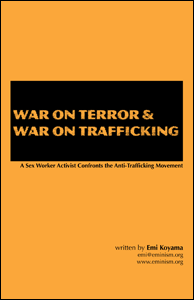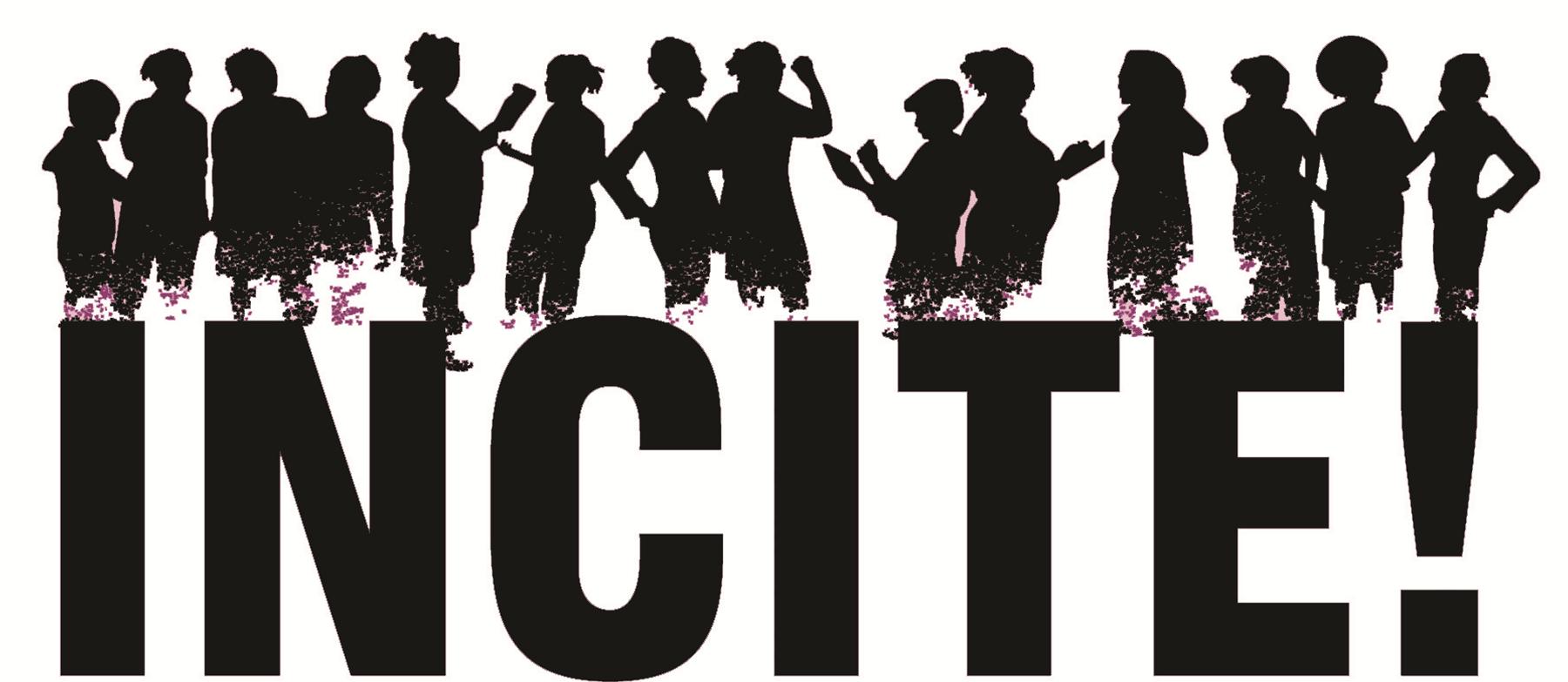 Emi Koyama of eminism.org has completed War on Terror & War on Trafficking: A Sex Worker Activist Confronts the Anti-Trafficking Movement, a powerful new zine that examines and challenges the current US domestic anti-trafficking movement. Here’s an excerpt from the zine intro:
Emi Koyama of eminism.org has completed War on Terror & War on Trafficking: A Sex Worker Activist Confronts the Anti-Trafficking Movement, a powerful new zine that examines and challenges the current US domestic anti-trafficking movement. Here’s an excerpt from the zine intro:
This booklet is a product of two years of research into the state of the anti-trafficking movement in the United States. I went to dozens of events, lectures, and conferences, and spoke with many wonderful but misguided people who take part in this movement. I have also had opportunities to hear many stories of surviving forced labor and prostitution, some of which were not so dissimilar to my own experiences in the sex trade in one point or another. I do not wish to negate their authority to speak about their own experiences and how they wished things were different, but I am deeply troubled by the cherry-picking of survivor stories and experiences that support the anti-trafficking trope equating all prostitution with trafficking and all trafficking with slavery, while all other voices are dismissed as “exceptions” (or “the top 2% elite,” as one anti-prostitution researcher said).
What I aim for in this booklet is to examine various questionable “facts” presented by the anti-trafficking movement, and address ways in which they distort our perceptions of sex trafficking and prostitution and mislead the public to support policies that are ineffectual or counter-productive. I will also show links between the War on Trafficking and the War on Terror, and how problematic aspects of the War on Terror permeates the War on Trafficking as well.
Chapter 1 of this booklet exposes the big three “factoids” that anti-prostitution groups use in order to influence people emotionally and to get their way with media, corporations, and the government, but are false. Chapter 2 continues on this direction, but focusing on other misinformation that influence public opinions. Chapter 3 scrutinizes “economic” arguments, including the “end demand” approach to end sex trafficking and the theory of “economic coercion.” In Chapter 4, I will use the movie Taken as a starting point to talk about the links between the War on Terror and the War on Trafficking. And finally in the conclusions, I will contrast anti-trafficking versus social and economic justice approaches, demonstrating how anti-trafficking movement is harming women and other vulnerable people.
Check out the full intro and table of contents here: http://eminism.org/blog/entry/231
Download a free preview and purchase the zine here: http://eminism.org/store/zine-emi.html














can’t wait to read this! thx for continually leading the way with incisive analysis to sharpen our thinking, strategizing, and movements!
I’m confused by this post. Most voices on mainstream feminist blogs take a pro-sex work stance. This is one reason the many women who have been severely traumatized by work in escort services, pornography, etc. do not come forward and share their stories–for fear of ridicule which I have witnessed happen. Are the lives of incest and then industry trauma survivors not more worthy of having a voice than those who claim their lives are nearly free of violence?
Feminists on all sides of this so-called “debate” agree that survivors of violence and trauma should be supported and treated with respect, not ridiculed or silenced. That is not what is being disputed here or on any feminist blog (if it’s actually feminist).
And yet, you do not seem to actually believe in giving voice to survivors; rather, you seem to prefer to support those individuals whose voices you happen to agree with, and silence all others as less “worthy of having a voice.”
That is shockingly offensive not just to women in the latter group, but to all survivors. You are in effect stealing and exploiting survivors’ voices when they happen to be compatible with your ideology, and silencing them when they don’t.
In fact, some survivors do not come forward and share their stories precisely because people like you rob their stories and use them to enable further police violence in marginalized communities, build more prisons, militarize borders, and harass women who are in the sex industry, rather than addressing individual and institutional obstacles that make us vulnerable to violence.